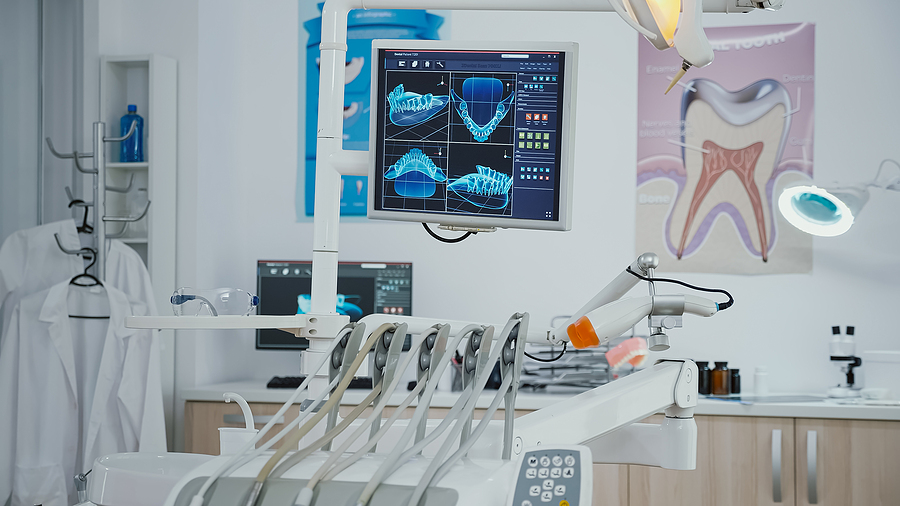Businesses have become more and more reliant on science and technology in order to operate on a daily basis. This is because people like to pay by phone or create their own bookings online. Dental practices need a wide range of equipment to perform their procedures, from disposable items and dental chairs to lab benches and sterilizers.
If you are opening a new dental practice or are looking for ways to update your existing one, this blog post will provide you with the top ways that you can purchase equipment for your company.
From General Websites
Table of Contents
Some generic (non-specialised) products can be bought over the internet. This would include disposable items such as masks, toothbrushes, dental wipes, cleaning wipes, alcohol wipes, gloves or aprons.
One example website would be Amazon, but there are many others from which you can choose.
From Specialist Companies
For more technical and bespoke equipment it’s wise to approach specialist businesses either in person or online. If you’re looking for specialised healthcare chairs you can find products made with hospital-grade contract vinyls and fabrics. They can also feature antibacterial, anti-microbial and wipe-clean finishes. Rather than buying generic seating, you can access things like hospital chairs, chairs for the elderly, waiting room chairs, beam seating and medical office chairs.
Consultancy
These types of companies don’t just supply specialist equipment for the dental industry. Many provide consultancy services too – helping you choose what you need based on your practice needs. You can then view them in their showrooms or buy them online.
Accounts
By setting up an account you may be able to enjoy additional discounts. The company may also take on some of your stocktaking tasks, reminding you when some of your inventory items are getting low – saving you considerable time and effort.
If you set up an account with the supplier, you may be able to pay in installments. This is usually over a period of time – say, 12 – 24 months depending on the supplier’s terms and conditions. You could also be offered interest-free credit too, which means you have longer to pay the account off in full. You should always make sure there are no hidden charges when signing up for any kind of financing deal, as well as reading through all the small print before committing yourself.
Buying In Bulk
Whilst it may be possible to buy individual items or equipment from your local supply stores, buying in bulk will definitely save you money. If you are looking for lower costs on certain items or would like to fill up the empty space on your premises, this option may be right for you.
By buying in bulk you can purchase a large amount at one time and take advantage of volume discounts. Few things reduce in price over time, so you may have little to lose. Lots of dental items (e.g. disposable ones) don’t have an expiration date, meaning there will be minimal wastage if you don’t use up all your stock in the near future.
Buying Secondhand
Many dental practices sell off their old equipment when they upgrade everything. For this reason, it’s well worth looking for recycled or refurbished items. (While you are thinking about the whole subject, it may be worth considering selling some of your outdated/unused equipment in case it can boost your company’s funds). Buying used equipment can save you thousands of pounds and it’s often as good as new. This can be a great way to get a bargain, especially if you are just starting out or have a restricted budget.
Look for equipment from dental schools, as they usually have good deals. You can also look on Craigslist or an online classifieds site. Make sure it is in working condition and ask if there are any parts missing before buying anything secondhand. It’s also worth looking on trade sites, and asking other dental practices if they have any spare equipment to sell. Also research online auctions, classifieds, and discount sites to find deals on used dental supplies and instruments.
E-Bay
It may also be possible to find used dental equipment on sites like eBay – although there is less guarantee of its condition because you’re not dealing directly with the seller. Make sure that when you’re looking online, all sellers have positive feedback from buyers. This will help ensure they won’t scam you or sell faulty products.
Using Trade-In Programmes And Buying From Wholesalers
Trade-in programmes allow you to exchange your old equipment for a new one at a discounted price. This can be an effective way of buying expensive items without having to pay the full amount upfront.
If you buy from a physical store you’ll be partly paying towards the premises and staff costs. By dealing directly with the wholesaler/manufacturer there will be no ‘middle man’ and you’ll enjoy cheaper prices.
Buying From Overseas
If you are looking for dental instruments/equipment that is not easily found in your country, consider buying them from overseas. There are advantages of doing this which include potentially cheaper prices if they are more cost-effective to make abroad. You may also be able to get new items before they are available locally.
On the downside, there could be longer shipping times due to customs clearances or delays when the goods arrive at port (e.g. because of bad weather conditions). You may also need an additional person in charge of cargo clearance so it might entail more expenses than expected.
Buying From Rental/Leasing Companies
They have a wide range of equipment for dental offices to choose from. They can provide specific benefits, including:
* Low monthly payments
* No need for large capital expenditures upfront
* The ability to upgrade without being forced into buying something new
You hopefully now have a clearer picture as to how to get your new dental equipment. Be sure to read the reviews beforehand, to ensure the products and suppliers are up to scratch. If you buy wisely, your new items will contribute to the continuing success of your business for many years to come.
Image Source: BigStockPhoto.com (Licensed)
Related Categories: Work, Reviews








